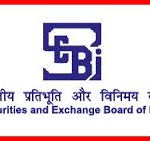Sebi proposes distinction between mutual fund distributors and advisers
Mumbai: The distinction between a registered investment adviser and a mutual fund distributor just got sharper.
On 2 January, Sebi came out with a consultation paper—the third so far—on adviser guidelines, taking another step in demarcating advice and selling. It said that a Sebi-registered adviser cannot offer mutual fund distribution services and a distributor cannot offer investment advisory services.
Despite the Securities and Exchange Board of India or Sebi (Investment Advisers) Regulations, 2013 being in place since 2013, until now, your investment adviser or mutual fund distributor would have typically done both—advise you on what to buy and when, followed by a sale transaction where you bought a mutual fund from her to execute the advice given.
Remember: the original 2013 guidelines had allowed distributors to set up a separate division (commonly known as separately identifiable departments or SIDDs) to offer advisory services. Then, the two consultation papers (October 2016 and July 2017) said that MFDs would need to set up subsidiaries and offer investment advisory services through them. The third consultation paper goes a step further and now tells advisers and distributors to choose—either become advisers or distributors, not both.
The latest consultation paper gives time till 31 March 2019 to distributors and advisers to make a choice,
Many advisers, despite getting registered with Sebi to be able to give advice, used to sell mutual funds. To be fair, investors needed someone’s help to complete the transaction. And advisers were happy to help. Partly, because it was an additional service that kept their clients happy, and partly because advisers could earn a trail fee. Fund houses pay trail fee to distributors for as long as the investor stays invested; the longer she stays invested, the higher the commission income for the distributor.
Although many advisers had segregated their advisory and distribution activities into separate divisions or companies, as per Sebi guidelines, 2013, many such companies or divisions were headed by family members or people close to advisers.
Sebi’s latest consultation paper tells advisers and distributors to choose one of the two. Further, it says that if a person’s immediate relative (spouse, parents, sibling, child, as per Sebi’s definition) runs either of the two businesses, the person cannot be the other. For instance, if the spouse is a distributor, the person cannot be an adviser, and vice-versa.
That could be easier said than implemented. “I wonder if this can hold legal ground. If my brother—who is an independent person—chooses to be a mutual fund distributor, why should that prevent me from being an adviser? Aren’t we living in a democratic country and allowed to follow the professions of our choice?” asks Rohit Shah, a registered investment adviser, and founder and chief executive officer of Getting You Rich, a financial planning firm.
Sebi’s paper also talks about banks being asked to choose. Some banks like HDFC Bank would close down their investment advisory division and continue only their distribution business. “These banks will give up their RIA licenses because they hardly had fee-only clients. Most of these banks have a sizeable chunk of their income coming from commissions earned from selling third-party products,” says the head of one of India’s largest national distributor, which is also a brokerage firm, on the condition of anonymity.
As per the mandatory commission disclosers of India’s largest distributors, six of the 10 highest commission-earning distributors are banks having earned Rs1,487 crore in 2016-17, according to Prime Database’s mutual funds data. With so much money, it’s only to be expected that any RIA licence that banks would have got, would most likely be surrendered, if Sebi’s consultation paper becomes a law.
There could be a side-effect. Some experts, like the national distributor quoted above, told us that “many advisers would surrender their RIA licence and go back to being distributors since it is very difficult to get customers to pay an advisory fee.”
Sebi has invited feedback by 23 January on its latest consultation paper.
Kindly send reply or comments on this topic to [email protected]
Source:Live mint

sebi



